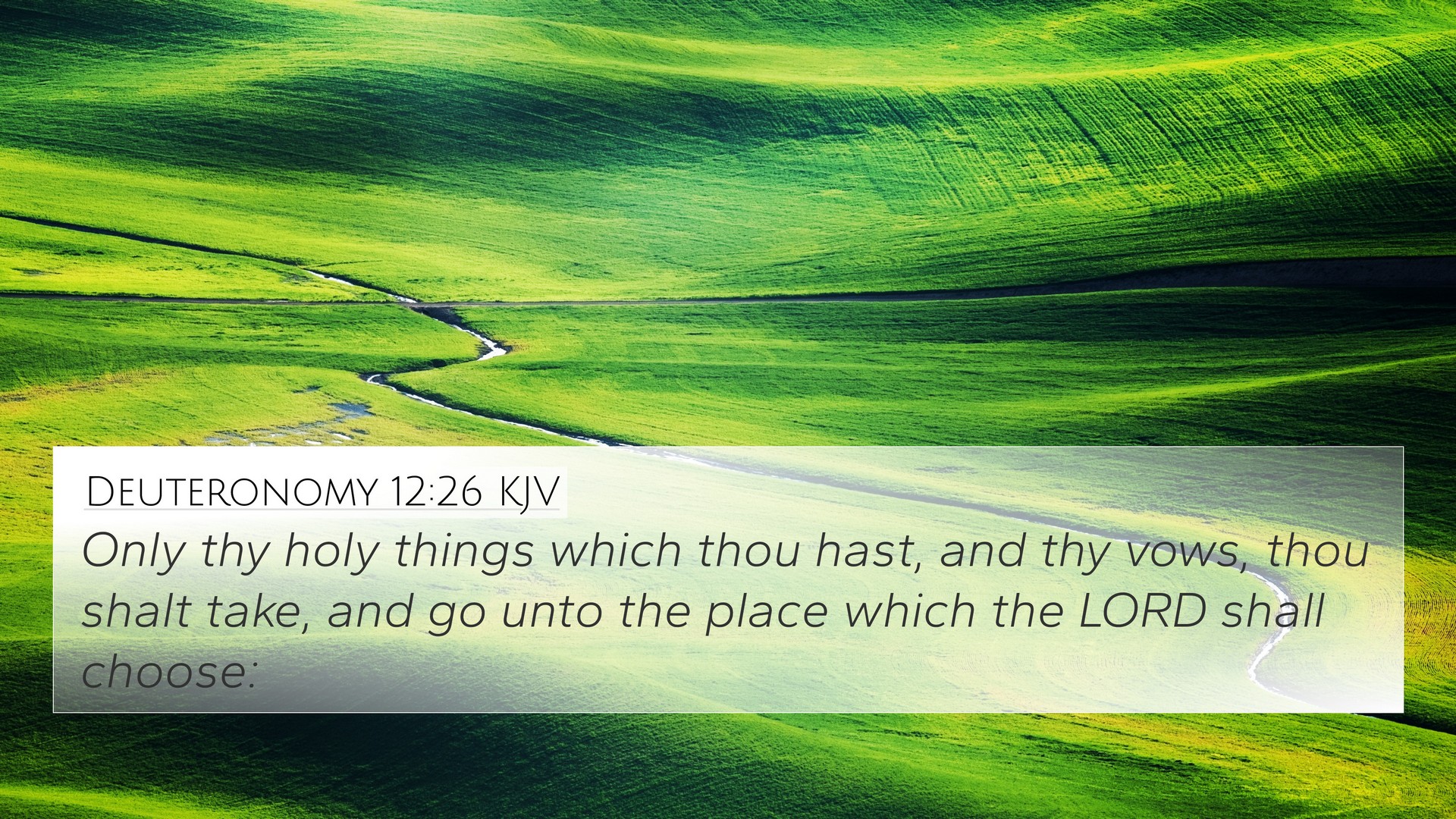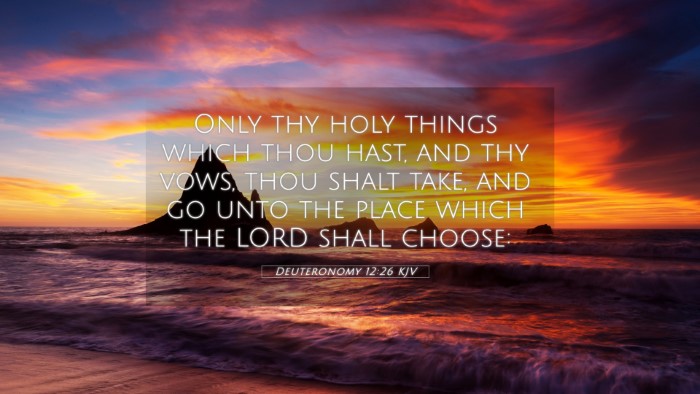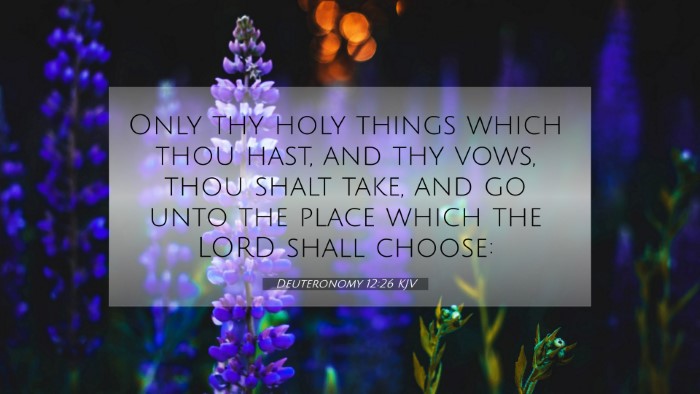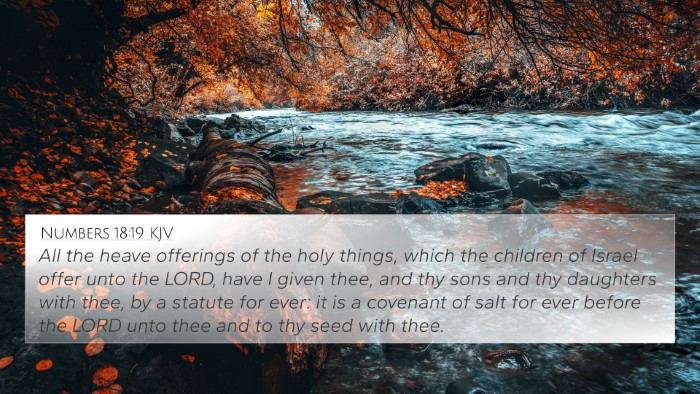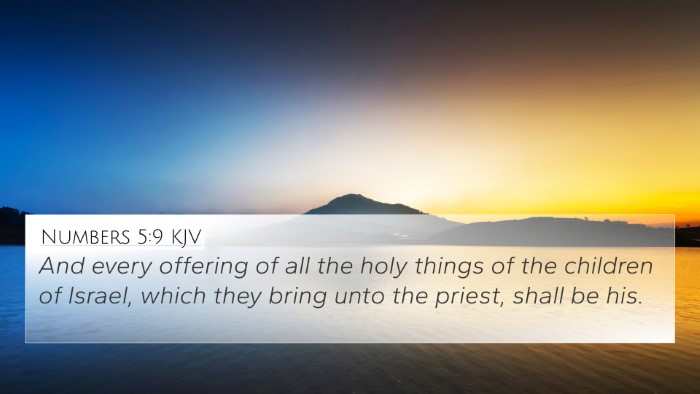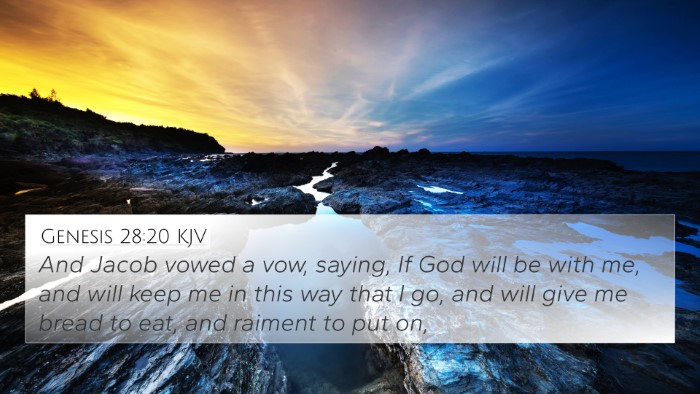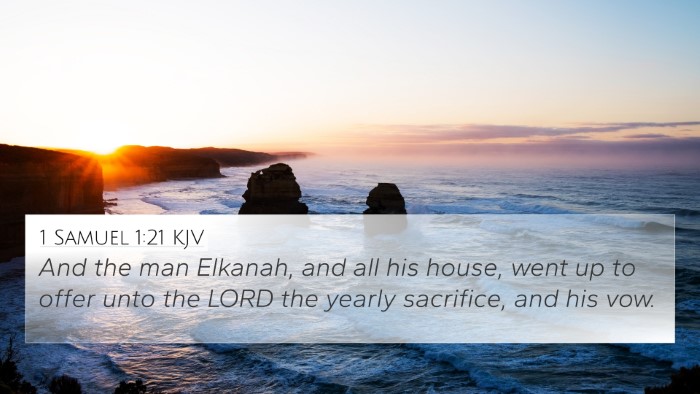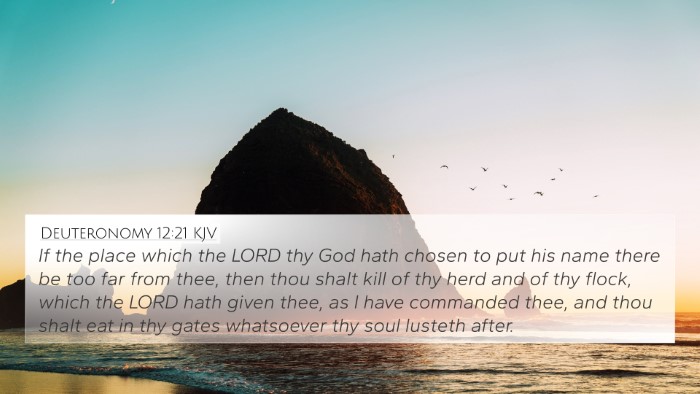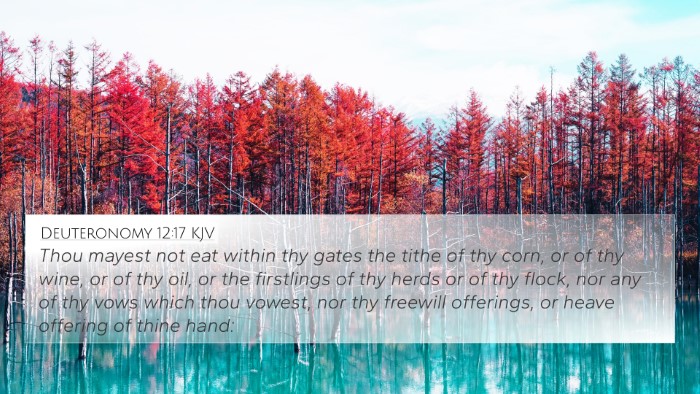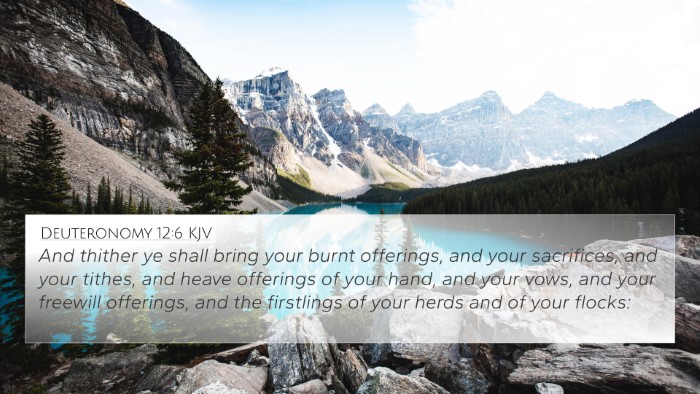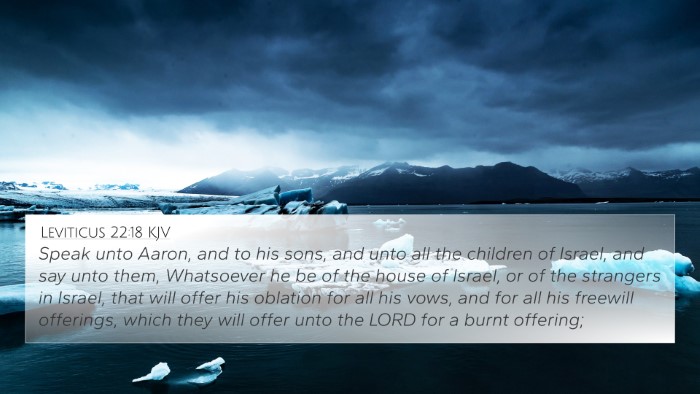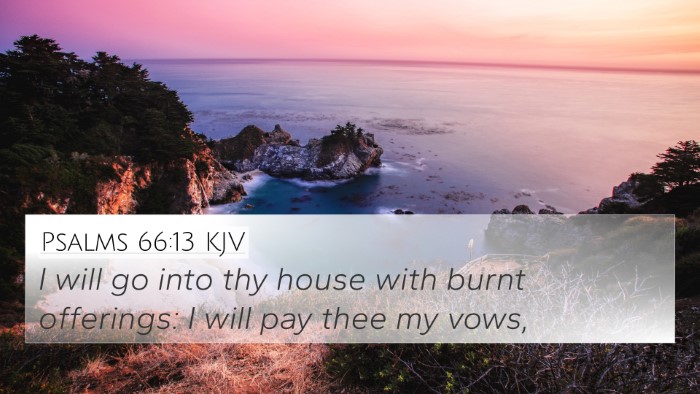Understanding Deuteronomy 12:26
Deuteronomy 12:26 states, "But unto the place which the LORD your God shall choose out of all your tribes to put his name there, even unto his habitation shall ye seek; and thither thou shalt come:" This verse offers profound insights into worship, the nature of God's presence, and the importance of divine selection. Below is a summarized meaning derived from several public domain commentaries, along with relevant cross-references.
Explanation of Deuteronomy 12:26
This passage emphasizes the directive given to the Israelites concerning the place of worship. God commands them to seek out a specific location where His presence will dwell, rather than worshiping at arbitrary sites.
Key Themes
- Divine Selection: Matthew Henry notes that the place signifies a chosen location by God, highlighting His sovereignty.
- Centrality of Worship: Albert Barnes emphasizes that worship should be centralized in the place selected by God, teaching the importance of unity in faith and practice.
- Seeking God's Presence: Adam Clarke expounds on the necessity of seeking the divine habitation, suggesting a heart posture of reverence and desire for communion with God.
Historical Context
This command is rooted in the context of Israel’s journey through the wilderness, preparing them for their establishment in the Promised Land. The significance of a chosen place for worship was to instill proper reverence and ensure the people remained focused on God amidst surrounding influences.
Spiritual Implications
The verse transcends its historical context, serving as a timeless reminder that true worship is only valid when it is directed toward the God who has chosen to make Himself known in specific ways. Each believer is called to seek out where God is actively working and where His name is honored.
Connections to Other Scripture
Deuteronomy 12:26 can be cross-referenced with several other biblical passages that reinforce its themes:
- 1 Kings 8:29: "That thine eyes may be open toward this house night and day, even toward the place of which thou hast said, My name shall be there."
- Psalm 132:13-14: "For the LORD hath chosen Zion; he hath desired it for his habitation." This reflects God's choice of a dwelling place.
- John 4:21-24: Jesus speaks about true worship, indicating that the location of worship is no longer limited to a single geographic point.
- Hebrews 12:22: Describes the heavenly Jerusalem, connecting the idea of a chosen place to the ultimate divine habitation.
- Exodus 20:24: "In all places where I record my name, I will come unto thee." This emphasizes God's desire to be present where He is honored.
- Acts 7:47-50: Stephen explains that God does not dwell in temples made with hands, heightening the understanding of God's presence beyond physical locations.
- Revelation 21:3: "And I heard a great voice out of heaven saying, Behold, the tabernacle of God is with men." This shows the ultimate purpose of God to dwell among His people.
Comparative Bible Verse Analysis
Comparing Deuteronomy 12:26 with other verses allows for a deeper understanding of the intentional worship God desires:
- Jeremiah 7:11: Discusses false worship in a temple, highlighting the necessity of genuine reverence toward God.
- Matthew 18:20: "For where two or three are gathered in my name, there am I in the midst of them," affirming God's presence where His name is invoked.
Conclusion
Deuteronomy 12:26 instructs believers on the importance of seeking God’s chosen place of worship, understanding the significance of His presence, and aligns perfectly with various biblical texts that express the heart of true worship. Through systematic cross-referencing, the interconnectedness of scripture enhances our theological understanding, elucidating how God continues to guide His people into sacred spaces where He can be encountered deeply.
Further Study and Resources
To dive deeper into the biblical themes presented in Deuteronomy 12:26, consider utilizing tools for Bible cross-referencing. A Bible concordance or a cross-reference Bible study guide can prove invaluable in your personal study. These resources help identify connections between Bible verses, enriching your understanding of scripture's cohesive narrative.
